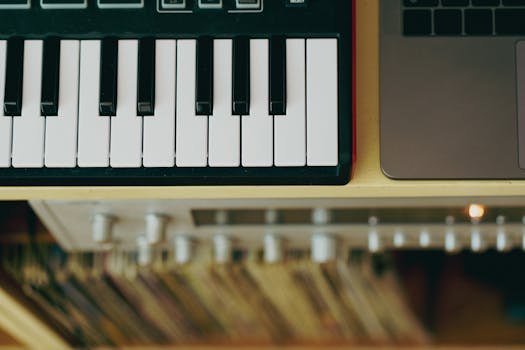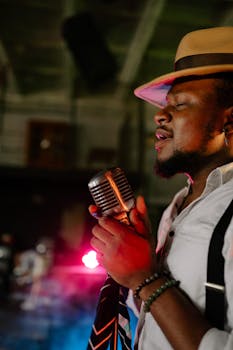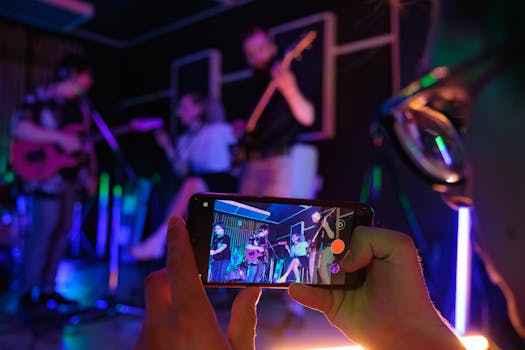As we look toward the horizon of the music industry, the dynamics of music communities are evolving at a rapid pace. These transformations are largely driven by technology, social media, and shifting cultural landscapes. Understanding the future of these communities can provide valuable insights for artists, fans, and industry professionals alike.
With the advent of digital platforms, artists have never had more opportunities to reach audiences across the globe. Music communities now often transcend geographical limitations, allowing people to connect and collaborate in innovative ways. This newfound accessibility is reshaping how we perceive music culture.
Furthermore, the role of fans has evolved from passive listeners to engaged participants in the music-making process. Communities are fostering deeper connections between artists and their audiences, and this engagement is vital in shaping the future of music. Now, let’s explore the aspects driving these shifts.
The Rise of Digital Platforms
Digital platforms have fundamentally changed how music is shared and consumed. With services like Spotify, SoundCloud, and Bandcamp, artists can distribute their music widely and easily. These platforms are central to modern music communities.
Moreover, the rapid growth of social media has facilitated direct communication between artists and fans. Musicians can engage with their audience through platforms like Instagram, Twitter, and TikTok, creating a more personal touch. This interaction is invaluable for community building.
In addition, live streaming has emerged as a popular way for artists to connect with fans in real-time. Platforms such as Twitch and YouTube allow musicians to perform live, interact with viewers, and build a loyal fan base. Live experiences are adapting to the digital age.
As technology continues to advance, new platforms will likely emerge, leading to further transformations in music communities. Emerging genres and niche markets could become more prominent, allowing diverse artists to shine. The music industry must remain adaptable in this landscape.
Ultimately, digital platforms are revolutionizing how music is created, shared, and experienced. As these platforms evolve, so too will the communities that form around them. Future trends will be shaped by the artists and fans navigating these digital spaces.
The Evolving Role of Fans
In past decades, fans were often seen as passive consumers of music. However, this narrative has shifted, with fans taking on more active roles in music communities. Today, fans help shape the careers of artists and contribute to the broader music culture.
For instance, social media has given fans the tools to voice their opinions and support their favorite musicians in various ways. Crowdsourcing projects and fan-led initiatives are becoming more common, allowing fans to fund and promote music they love. These efforts can significantly impact an artist’s success.
Moreover, fan communities are emerging as pivotal spaces for collaboration and connection. Many fans connect over shared interests, forming deeper friendships and networking opportunities. These communities often become a second home for individuals who share a passion for music.
Furthermore, fans are now collaborating with artists on creative projects, expressing their support in unique ways. This collaborative spirit fosters a sense of ownership and pride within communities. Such relationships reinforce the bond between artists and their audiences.
As we move towards the future, the role of fans will likely expand even further. Their input will continue to influence the music landscape, making them an invaluable asset in the development of vibrant music communities.
The Impact of Technology on Music Creation
Technology has revolutionized music creation, allowing artists to compose, produce, and distribute music from virtually anywhere. High-quality recording equipment is now widely accessible, enabling creativity to flourish. Musicians can create from the comfort of their homes.
Additionally, software like GarageBand and Ableton Live has democratized the producing process. Independent artists no longer need access to expensive studios to produce professional-sounding tracks. This shift empowers more creators to share their work with the world.
Moreover, Artificial Intelligence (AI) is playing a disruptive role in music production. AI tools can assist musicians in creating new sounds, generating melodies, and streamlining the production process. As this technology develops, it will likely redefine genres we know today.
Collaborative tools have also emerged, enabling artists to work together seamlessly from different locations. Platforms such as Splice connect musicians, allowing them to share ideas and files in real-time. This global collaboration enhances creativity and fosters vibrant music communities.
Ultimately, technology is not only making music creation more accessible but also paving the way for new forms of expression. As technology continues to evolve, it will undoubtedly influence the music community’s landscape and redefine our understanding of creativity.
Building Inclusive Communities
As the music industry heads into the future, inclusivity will remain a significant focus. Music communities need to provide spaces for diverse voices, ensuring marginalized artists are heard and supported. Equity in representation must be a priority as communities expand.
Diversity benefits music communities by enriching the artistic landscape. Varied perspectives lead to innovative sounds and styles, resulting in a more vibrant cultural exchange. Encouraging all voices fosters creativity and broadens the appeal of music.
Furthermore, mentorship and support systems are vital in nurturing underrepresented talent. Initiatives aimed at helping emerging artists can empower them while creating a more balanced community. By investing in these artists, communities can develop sustainably.
Events, forums, and online spaces that celebrate diversity can create dialogue and understanding among different musical cultures. Additionally, partnerships with advocacy organizations can amplify efforts toward inclusivity. Collaboration breeds awareness, contributing to a supportive environment.
Moving forward, music communities that prioritize inclusivity will be more resilient and rich in talent. By fostering equal opportunities for all artists, we can build the foundations for a thriving musical future.
The Role of Live Events
Live events hold cultural significance in music communities, providing unique experiences that unite artists and fans. Concerts, festivals, and intimate performances create opportunities for real-world interactions. Shared experiences can strengthen community bonds.
Moreover, live events have adapted to the digital world, blending in-person experiences with virtual participation. Hybrid events allow for increased accessibility, reaching audiences who may not be able to attend in person. This combination enhances engagement and fosters community growth.
Furthermore, festivals especially serve as dynamic hubs for networking, collaboration, and discovery. They provide a platform for emerging artists and showcase diverse genres. Attendees can explore new music and connect with like-minded fans.
The rise of pop-up events and smaller venues also emphasizes the local scene’s importance. Supporting local music fosters community spirit and builds stronger connections among residents. Local shows are becoming integral to the overall music ecosystem.
As we move forward, live events will continue to play a vital role in shaping music communities. Their ability to connect people through shared experiences will remain essential in fostering a supportive environment for artists and fans alike.
The Future of Collaboration in Music
Collaboration has always been at the heart of music creation. As we look ahead, this spirit of partnership is set to expand further, driven by various factors and technological advancements. Collaboration is key to innovation.
A growing trend involves cross-genre collaborations that challenge traditional boundaries. Artists from different backgrounds and styles are connecting, creating fresh sounds that resonate with diverse audiences. These collaborations foster creativity and redefine musical genres.
In addition, virtual collaborations through digital platforms are becoming more commonplace. Artists can work together regardless of distance, sharing ideas and finalizing projects seamlessly. The digital realm has made collaboration more flexible and efficient.
Furthermore, artist collectives and collaborative projects are gaining popularity. Musicians coming together to create unique experiences can lead to new artistic expressions. This teamwork strengthens community ties while offering fans something special.
Ultimately, the future of music will be marked by increased collaboration among artists. As they work together creatively, they will likely shape music communities that are more interconnected and enriched by shared experiences.
Conclusion
As we reflect on the future of music communities, it’s clear that these spaces are evolving in exciting ways. Digital platforms, the empowered role of fans, and technological advancements are all contributing to this change. Moreover, inclusivity and collaboration will remain vital in fostering rich music cultures.
As communities continue to thrive, they will offer unique opportunities for artists and fans to connect. The music landscape is more vibrant than ever, driven by innovative ideas and engaging experiences. Looking forward, the music community’s potential is limitless.
In summary, by embracing change, nurturing inclusivity, and fostering collaboration, we can create a future in which music communities flourish. Together, we can build an exciting and diverse musical environment that inspires creativity and connection.


